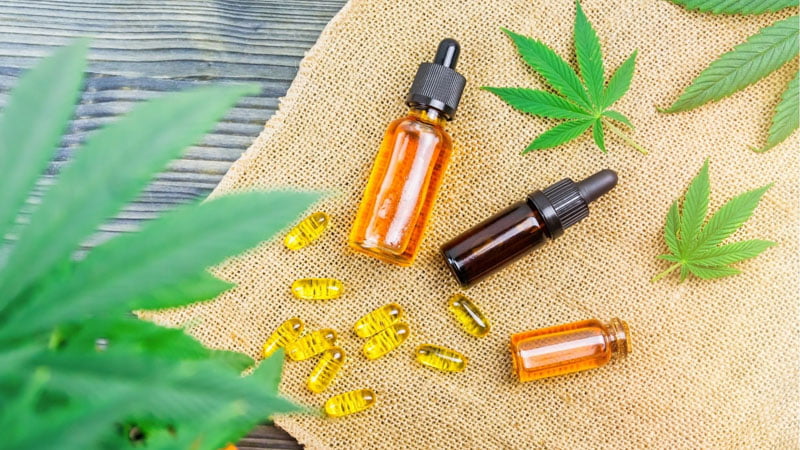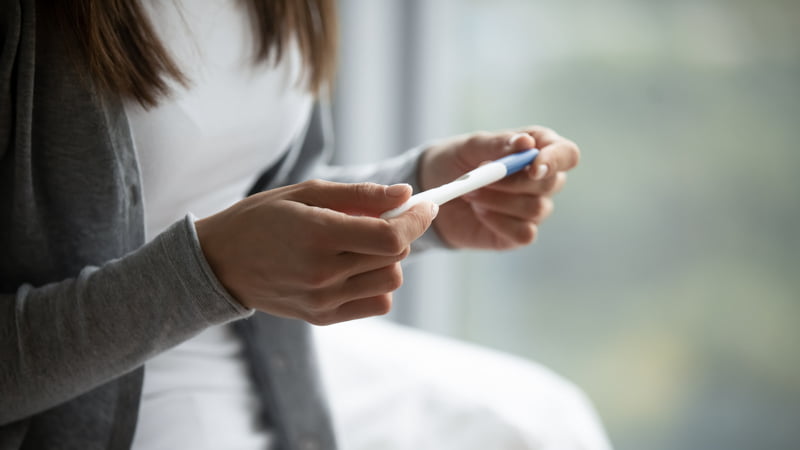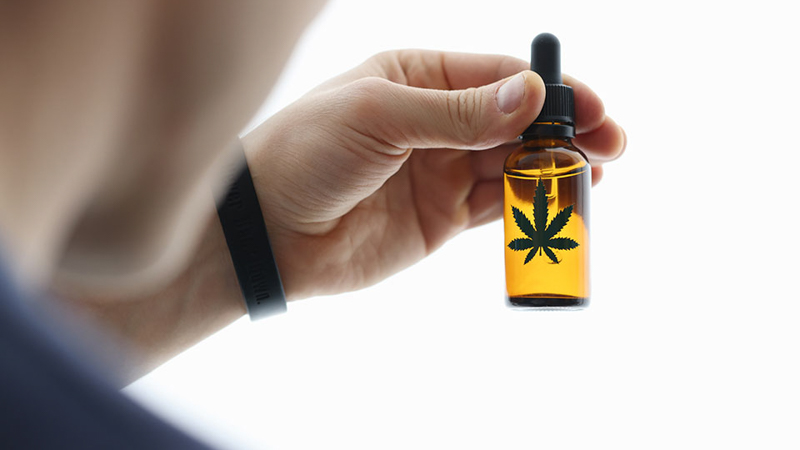CBD and Birth Control: Does Hemp Oil Affect Contraceptive Pills?

CBD is the dominant compound in hemp-derived products that acts on the human endocannabinoid system when ingested. This system is intimately linked with major bodily functions, and that includes the reproductive system. CBD has been shown to affect female reproductive hormones such as estrogen, and thus it might affect birth control measures taken by women.
CBD also seems to affect the reproductive system overall and thus can cause the system not to function normally, thus potentially mimicking the effects of birth control.
CBD and Birth Control: How CBD Affects the CYP450 Enzyme System
Most of the medication we take is metabolized by the liver. CBD directly affects a liver enzyme called CP450. This enzyme is responsible for metabolizing about 60% of all the medication we take. This is the same reason why certain medications ask you to avoid grapefruit when using them.
CBD is more potent than grapefruit when it comes to disrupting this enzyme and thus makes it much harder for certain medications like birth control to do their job. Since the individual metabolism rate and various other physiological processes vary so much, it is important to recognize this fact before taking CBD in any form.
One vital point to keep in mind is that this interaction of CBD with the enzyme will cause the system to create a build-up of the various chemicals that are not getting processed at their normal speed. This can potentially create a problem by exaggerating the effects of the medication instead of undermining it because the active ingredients are accumulating in the body instead of getting used up.
Always talk to your doctor before taking CBD if you are on any active medication, including birth control.
CBD and Estrogen-based Birth Control Pills

This enzyme-blocking behavior makes it difficult for estrogen-based birth control to be effective. These include oral pills, patches, and rings. Progesterone-based birth control has been seen to not be affected in the same way and is thus presented as an alternative option for those who want to continue using CBD and birth control medication at the same time. Physical barrier methods like a condom are, of course, not going to be affected in any way by CBD. IUDs also remain effective contraceptive options when taking CBD.
Progesterone has been shown through research as a viable alternative to other hormone-based birth control measures; it also doesn’t produce any adverse sexual effects. CBD does not seem to change the body’s usage of external progesterone hormones, making it a viable alternative to estrogen and synthetic estrogen-based birth control.
How CBD Affects Estrogen In The Body
CBD is known to disrupt the estrogen production system in the body. Researchers who have measured this in various cannabis haven’t conducted much research on actual healthy individuals. The same researchers claim that the full effect of CBD on the estrogen production and distribution system is poorly understood.
The general observation is that CBD can interfere with estrogen-based birth control because of its interaction with the liver enzyme that helps metabolize external estrogen. At the same time, it seems to inhibit the production of estrogen in the body because it sometimes behaves like estrogen.
This simply underscores the fact that this part of the CBD interactions is poorly understood. The consensus seems to be that cannabis has a complex effect on the reproductive system because it changes so many essential reproductive functions of the body.
CBD and Hormones
As mentioned earlier, CBD has been known to interact with various hormones in several ways, such as the estrogen found in pills and the body. Each hormone reacts differently to CBD, and the final effect is very complex. The dosage of CBD also seems to affect the impact on various hormones. Overall, there is not enough research so far to produce simple answers. Instead, we only have a few functional pieces based on observation and data analysis, such as avoiding estrogen-based contraceptive pills.
Can CBD Be Used As Birth Control?

This seems to be a fairly common question when people discover the complex relationship between cannabinoids and the human reproductive system. The main takeaway here is that individual physiology has a significant impact on how this question is answered. So we can look at the various factors that affect these sexual and reproductive functions when CBD and other cannabinoids are taken.
Endocannabinoid System And The Reproductive System
The endocannabinoid system is present in various important female reproductive cells, and cannabinoids produced inside the body as well those ingested through something like CBD oil or extract, change the way these cells behave. This ends up affecting the way fertility-related events occur in women.
It has been found in areas of the brain responsible for controlling various aspects of the female reproductive system. So it seems to have an overall impact on fertility, reproduction, and other related hormonal functions.
How Cannabinoids Affect The Reproductive System
The effects of the various cannabinoids found in hemp include changes in how the body produces hormones and how the reproductive system works. It affects both male and female systems.
Both systems respond differently to CBD, as is to be expected in the case of causing changes to the reproductive system. It affects the main sex hormones in both instances, though, and seems to affect how the body changes based on these hormones.
THC has also been observed to specifically change the way the ovaries work in women, in this case also using the endocannabinoid system to create this change to sexual health.
It’s important to note that when these systems are changed in any way that strays from how they usually function, the changes can lead to the dysfunction of the entire system.
However, there are no direct studies investigating the effect of CBD on fertility, so doctors can’t recommend it as a means of birth control.
Related Therapeutic Possibilities
Another topic being studied now is how the endocannabinoid system interacts with certain forms of cancer. Various natural cannabinoids are being used in such studies, which involves investigating how cannabinoids work on the multiple mechanisms that control the functions of the ovary and uterus. Such research is providing new insights into how CBD affects sexual health, reproductive activity in women, other menstrual problems.
Cannabis Use And Its Impact On Pregnancy And ChildBirth
Researchers are still studying cannabis use during pregnancy. There has been some evidence to suggest that it may be connected to a slightly lower weight at the birth of the child. Otherwise, there seems to be no change in the other factors that affect human newborns.
Another study says the numbers related to the lower weight observed in mothers who used cannabis during pregnancy were too small to be considered. So they concluded that there was no connection between the two. They also said that there was no connection between cannabis use during pregnancy and health complications or deaths in newborns.
Impact of Cannabinoids On Male Sexual Health

There’s only a small number of studies that have analyzed the impact of cannabinoids on male sexual health. They mostly seem to contradict each other’s findings, thus not creating any consensus in the matter. What can be said confidently is that there appears to be some effect that cannabinoids can have on male sexual health, such as changes in semen production and increase testosterone levels.
Key Takeaways on CBD and Birth Control
The specific nature of CBDs interaction with birth control is a complex one. The only clear consensus seems to be that there is a strong possibility that estrogen-based contraceptive measures — pills, patches, rings, injections, etc. — will become ineffective when used with CBD products. The suggested alternative is using progesterone-based birth control pills, which continue to remain effective in the presence of CBD.
Since many CBD products also contain other cannabinoids that are part of the entourage effect, there is a possibility of a complex interaction with the reproductive system for both men and women.
Some researchers have suggested that there’s a risk that the reproductive system can be disrupted by the stimulation of the endocannabinoid system in a way that changes the way sperm production in men and egg release in women work. However, the research is still ongoing and will take some time to fully test out these initial results.
CBD and other related cannabinoids are very specific in the way they affect the body. This is the reason behind the confusion amongst researchers. Most conclude by echoing the need to investigate further.
CBD acts on many other hormones in the body, such as serotonin and dopamine, affecting our mood, eating patterns, circadian activity, and more. Combined with its impact on reproduction, it’s only within reason to assume that CBD has a cumulative effect on hormonal balance.
Do you take CBD together with birth control pills? Share your experience in the comment section!
Sources:
- Jiang, R., Yamaori, S., Takeda, S., Yamamoto, I., & Watanabe, K. (2011). Identification of cytochrome P450 enzymes responsible for the metabolism of cannabidiol by human liver microsomes. Life sciences, 89(5-6), 165–170.
- Ruh, M. F., Taylor, J. A., Howlett, A. C., & Welshons, W. V. (1997). Failure of cannabinoid compounds to stimulate estrogen receptors. Biochemical pharmacology, 53(1), 35-41. [2]
- de Castro Coelho, F., & Barros, C. (2019). The potential of hormonal contraception to influence female sexuality. International Journal of Reproductive Medicine, 2019. [3]
- Hormone Health Network. (2017, June). Estradiol. Retrieved from https://www.hormone.org/your-health-and-hormones/glands-and-hormones-a-to-z/hormones/estradiol.
- Almada, M., Amaral, C., Oliveira, A., Fernandes, P. A., Ramos, M. J., Fonseca, B. M., … & Teixeira, N. (2020). Cannabidiol (CBD) but not tetrahydrocannabinol (THC) dysregulatess in vitro decidualization of human endometrial stromal cells by disruption of estrogen signaling. Reproductive Toxicology, 93, 75-82. [5]
- Ruh, M. F., Taylor, J. A., Howlett, A. C., & Welshons, W. V. (1997). Failure of cannabinoid compounds to stimulate estrogen receptors. Biochemical pharmacology, 53(1), 35-41.
- O’Llenecia, S. W., Holloway, A. C., & Raha, S. (2019). The role of the endocannabinoid system in female reproductive tissues. Journal of Ovarian Research, 12(1), 1-10. [7]
- Crume, T. L., Juhl, A. L., Brooks-Russell, A., Hall, K. E., Wymore, E., & Borgelt, L. M. (2018). Cannabis use during the perinatal period in a state with legalized recreational and medical marijuana: the association between maternal characteristics, breastfeeding patterns, and neonatal outcomes. The Journal of Pediatrics, 197, 90-96.
- Fergusson, D. M., Horwood, L. J., Northstone, K., & ALSPAC Study Team. (2002). Maternal use of cannabis and pregnancy outcome. BJOG: An International Journal of Obstetrics & Gynaecology, 109(1), 21-27. [9]
- Shamloul, R., & Bella, A. J. (2011). Impact of cannabis use on male sexual health. The journal of sexual medicine, 8(4), 971-975.
- https://clinicaltrials.gov/ct2/show/NCT04396730 [This study is in progress]